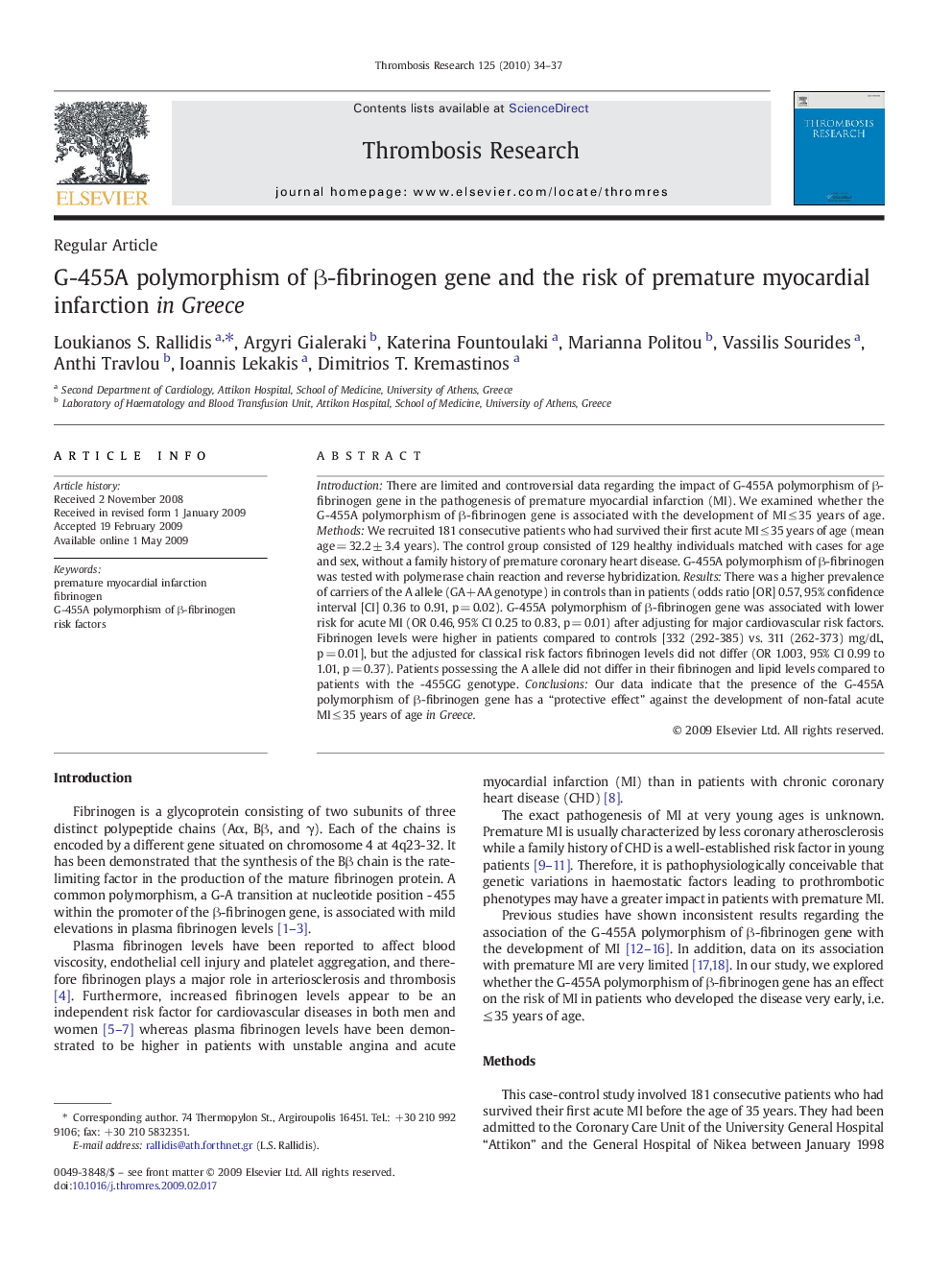| Article ID | Journal | Published Year | Pages | File Type |
|---|---|---|---|---|
| 3028099 | Thrombosis Research | 2010 | 4 Pages |
IntroductionThere are limited and controversial data regarding the impact of G-455A polymorphism of β-fibrinogen gene in the pathogenesis of premature myocardial infarction (MI). We examined whether the G-455A polymorphism of β-fibrinogen gene is associated with the development of MI ≤ 35 years of age.MethodsWe recruited 181 consecutive patients who had survived their first acute MI ≤ 35 years of age (mean age = 32.2 ± 3.4 years). The control group consisted of 129 healthy individuals matched with cases for age and sex, without a family history of premature coronary heart disease. G-455A polymorphism of β-fibrinogen was tested with polymerase chain reaction and reverse hybridization.ResultsThere was a higher prevalence of carriers of the A allele (GA+AA genotype) in controls than in patients (odds ratio [OR] 0.57, 95% confidence interval [CI] 0.36 to 0.91, p = 0.02). G-455A polymorphism of β-fibrinogen gene was associated with lower risk for acute MI (OR 0.46, 95% CI 0.25 to 0.83, p = 0.01) after adjusting for major cardiovascular risk factors. Fibrinogen levels were higher in patients compared to controls [332 (292-385) vs. 311 (262-373) mg/dL, p = 0.01], but the adjusted for classical risk factors fibrinogen levels did not differ (OR 1.003, 95% CI 0.99 to 1.01, p = 0.37). Patients possessing the A allele did not differ in their fibrinogen and lipid levels compared to patients with the -455GG genotype.ConclusionsOur data indicate that the presence of the G-455A polymorphism of β-fibrinogen gene has a “protective effect” against the development of non-fatal acute MI ≤ 35 years of age in Greece.
